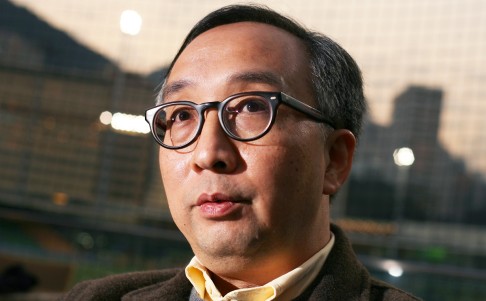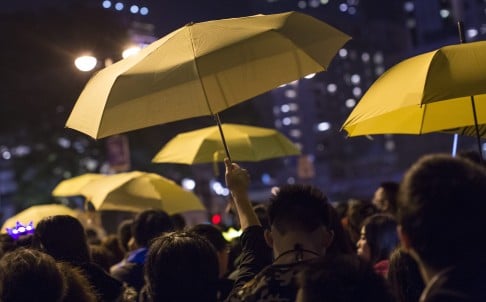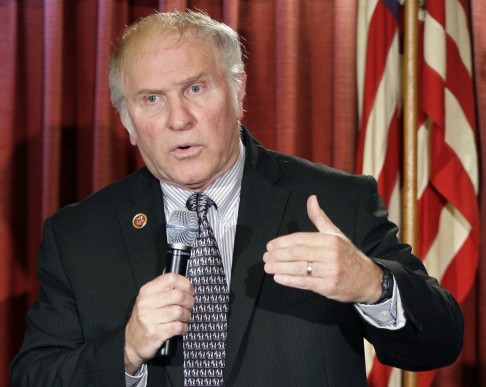A panoramic view of North Point from Kowloon. Compared with Central and Sai Wan, North Point has a shorter history. Photo: Baycrest
North Point: A living history of Hong Kong
Many of Hong Kong’s geographical place names have been in use for more than 150 years. Some describe their specific locations. North Point is one of them.
North Point sits on the northernmost tip of Hong Kong Island, a major cross-harbor interchange on the MTR line.
It has a shorter history than Sheung Wan or Central (Victoria City in the earliest colonial times). Before World War II, North Point largely consisted of a steep, narrow road that ran from Central to the eastern parts of the island.
Later, its surrounding areas became home to several large quarries when demand for rocks soared during a construction frenzy in Central and Kowloon. That’s how Quarry Bay on the eastern side of North Point earned its name.
Reclamation projects since the early 1900s have pushed the coastline into Victoria Harbor, expanding North Point further to the north.
Not many young people know that bustling Tsat Tsz Mui Road was once a tranquil beach before the 1910s and the original coastline was roughly along the tram tracks.
Hongkong Electric’s power plant and a number of government warehouses built on reclaimed land marked its gradual transformation from a remote, dull suburb into a thriving frontier of urbanization.
Names of roads in North Point, such as Electric Road, Power Street, Wharf Road etc., remind people of the old days when North Point was a vital industrial district.
North Point powered Hong Kong Island for most part of the 20th century until 1970s when Hong Kong’s economy moved into top gear.
The power plant, built in 1919, was torn down to make way for the City Garden complex, one of the top 10 upmarket residential estates at the time.
King’s Road Playground next to the new Customs headquarters is witness to Hong Kong’s volatile past. The site was a refugee camp during World War II and was converted into a large prisoner camp after the Japanese army took control of the territory in the Battle of Hong Kong in 1941, according to Ko Tim-keung, a local historian and a member of the Antiquities Advisory Board.
For older people, the playground may evoke intense personal memories of Hong Kong’s liberation in August 1945.
The playground was the site of the first registration office that issued identity cards to residents and tens of thousands of mainland and overseas war refugees who were later naturalized and granted right of abode in Hong Kong.
North Point was home to Hakka offspring and descendants of Xiamen families from China’s Fujian province who fled communist rule in the decades before the handover.
If you visit some public libraries and government-run markets there, you will find that notices are broadcast in the public address system in Cantonese, English, Putonghua — and Hakka.
Since the 1960s, North Point has been home to a sizable Shanghainese community.
Their contribution to local culture include night clubs, music lounges and dance halls, especially in the 1940s and 1950s, decades before Tonnochy Road in Wan Chai became Hong Kong’s premier entertainment hub.
Some senior residents still call North Point Lai Chi (Ritz in English). It was the name of the largest entertainment parlor at the time. It opened in 1940 with a dance hall, swimming pool and even a mini golf course. The place was thus called “little Shanghai”.
Luxurious harborside living for the poor was also what North Point had to offer.
In the 1950s, the Hong Kong Housing Authority, as it was called then, started building North Point Estate, the largest subsidized housing project at the time, on a harborfront site next to the pier.
A slew of new high-rises served by elevators and boasting such amenities as individual kitchens, bathrooms and balconies, community halls, bus depots and post offices set a new standard for public housing.
The estate was demolished in 2002 and is now being redeveloped by Sun Hung Kai Properties into a luxury apartment compound.
North Point also had a cluster of media offices and publishing houses including Commercial Press and Joint Publishing. For many years, it was home to the Hong Kong Economic Journal.
The best way to explore North Point is by tram from Causeway Bay to Taikoo Shing Road.
Despite being a jumble of residential-cum-commercial buildings, North Point has its own unique character.
It offers a living history of how one place has changed with the times and with the city and gives history lovers a chance to contribute their own personal narrative to the Hong Kong story.
– Contact us at english@hkej.com
RA
Read more: Hong Kong Places
Yau Ma Tei theaters and shops: A slice of HK history
Temple Street: Why the magic endures
Gwo Laan: Fruity story of an old Hong Kong trade
Things you probably didn’t know about Chungking Mansions
Coming MTR line changing life on the edge of HK Island
North Point MTR station opened in 1985. It is a major interchange on the cross-harbor line Photo: Frank Chen
North Point pier is the only public pier in Eastern District. Photo: Baycrest
An aerial view of the harbor side. It was the site of a power plant from 1919 to 1978. Photo: bluestyle.livedoor.biz
Java Road is a major east-west thoroughfare. Photo: Huang Kong Hing
EJ Insight writer
http://www.ejinsight.com/20150130-north-point-hong-kongs-living-history/?utm_source=rss&utm_medium=rss&utm_campaign=20150130-north-point-hong-kongs-living-history

 Professor Lui Tai-lok was editor-in-chief of the magazine in 1980. Photo: Dickson LeeProfessor Lui Tai-lok, a sociologist at the Hong Kong Institute of Education, who was the magazine's editor-in-chief in 1980, noted that back then most of the magazine was written in Chinese, so few government figures read it.
Professor Lui Tai-lok was editor-in-chief of the magazine in 1980. Photo: Dickson LeeProfessor Lui Tai-lok, a sociologist at the Hong Kong Institute of Education, who was the magazine's editor-in-chief in 1980, noted that back then most of the magazine was written in Chinese, so few government figures read it.

